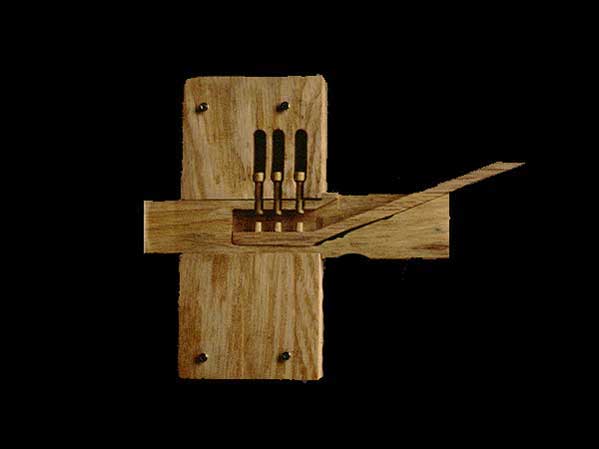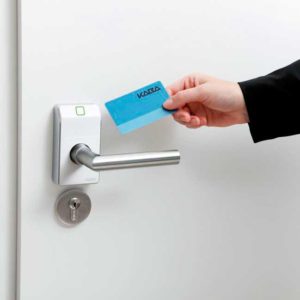Are Traditional Metal Keys Outdated
 As early as the Egyptians, we have been making use of keys to secure and lock our possessions. The traditional key has proven incredibly durable, but as digital security systems grow to be increasingly common, are the years of the simple key running out?
As early as the Egyptians, we have been making use of keys to secure and lock our possessions. The traditional key has proven incredibly durable, but as digital security systems grow to be increasingly common, are the years of the simple key running out?
It appeared this month that Nissan with keyless ignition starts is a focus for criminals and difficult to insure in Edinburgh. If a criminal can get into a car, it is a distinct possibility that they can duplicate its keyless ignition system code using a product purchased on the web.
Initially, it appears like an issue of updating a tried and trusted object with an untried security system.
But Nissan’s issues are just “minor issues”, says James Simpson, data manager at Thatcham, a high tech security company which checks vehicles for EU safety regulations. The overall picture is that the majority newly built vehicles are being secured by electronic devices not a chunk of metal.
Significantly more than 85% of cars now have fitted some kind of digital key fob or keyless systems, Simpson says. In ten years time you should expect no newly built vehicles being developed that depend entirely on a traditional key system, he forecasts.
As for the troubles of theft in Nissan, this will be resolved with technological innovation, he states. There was a related issue when the earliest digital vehicle locks were launched, with criminals replicating the frequency of the securing sound to get in. But now the key fobs are protected by operating countless codes each time the car is secured and opened, Simpson claims.
The future, he states, will witness digital keys updated by a mobile device with a code that opens the car.
For as long as there’s been entrances there have existed keys. It’s believed the most ancient were in use by the Pharaohs. Their common process of a key raising a collection of pins out of a lock, enabling it to shift, continues to be employed today. But the majority of this advancement was virtually ignored throughout the Middle Ages, claims locksmith Edward Knox. The traditional lock concept was perfected in the 18th Century, with the inclusion of springs. The current door keys we apply nowadays were created by Linus Yale Jr in 1860 and are mostly a modified adaptation of everything the early Egyptians employed 3,000 years ago, says Knox.
It won’t amaze everyone entirely if a creation from a few thousand years ago ends up being obsolete. However, keys have been extremely durable.
The hospitality sector was one of the earliest to abandon metal keys. The earliest key cards were launched at a motel in Atlanta, in 1980. It was a basic item with a collection of slots displayed in it. The technology has been extensively used, but not only for security systems – it lowers the amount of electrical energy since a customer can primarily control the lights with the card in the slot. It also allows hotel employees to see when the customer is in their accommodation, and, significantly, it requires the security does not need to be changed if the key is mislaid.
In Edinburgh, the George, the Balmoral, and Travelodge each use key cards, with the Holiday Inn one of the few large establishments to avoid them. Shortly even a card could be useless. In the future, Hilton guests in the United States will be lucky enough to use their mobile phone as a key to their accommodation.
In similar places, biometric and key cards are being launched in medical centres and universities – allowing entry to cabinets and storage on wards and storage lockers for university students. So will keyless systems start taking over in people’s homes?
- Managing your main door using Bluetooth
- Opening the entrance instantly if the person is close
- Delivering digital keys to guests and staff
- Regulating what time specific people have entry
Recently, Apple introduced HomeKit, a programming platform which will enable developers to produce apps for property security, such as door security.
There is currently a system, the August Smartlock, that unlocks buildings via a mobile device. The unit allows the holder to offer different people entry to the property electronically at certain times. In the instance of an electrical power failure, a traditional key will always unlock the door as a backup, the institution states.
But some will indicate that although key less security and smartphones are fantastic in principle, entry to your house is too valuable to leave to technologies.
Greg Chapel, an engineering journalist at the Times, affirms that house owners may be content to rely on a card or mobile for accommodation and vehicles, but a greater feeling of security is associated when it relates to your home. And regardless if keyless security becomes popular, the majority of house owners do not live in brand new properties. Fitting properties with the latest digital locks would be costly and unrealistic.
Interiors consultant Tina Laidlaw agrees. Digital locks and touch screen entry may become the standard one day, but she can’t visualise them being less expensive or safer than the standard metal key.
So why would house owners switch, particularly as house owners tend to be extremely conventional when it comes to their homes?
Traditional keys are still what house owners connect with security and protection. The same was in the past stated with cash and bank cards – that users would not accept virtual cash or online transactions. So it’s likely that perceptions will slowly change on traditional keys.
At this time the metal key’s appeal continues unchallenged by new technology. In 2016 Timpsons, the high street business, sold over 17,650,000 keys – its largest total to date.
“Most of these digital systems are good until you go on vacation,” says Tim Hanlon, the business creator. “Thinking of codes and security passwords is a headache. You can’t top the basic concept of a key.”
And what about deterioration, questions James Wright of the History of Locks Museum in Bournemouth. He can’t anticipate an occasion when mechanical locks will not be an activity of our everyday life. “You lose a key in water, and it’s fine. If you lose a digital key (or mobile), it will generate countless issues.”
Individuals shouldn’t be amazed at the metal key’s durability, says Graeme Smith, teacher of the history and technology at Edinburgh University. Consider paper clips, cycles and publications, furniture and seating. The majority of components stay the same. “We imagine the world as if it’s frequently changing itself from the bottom, but it is not. We fly about on jet packs, do we?”
Change is indeterminable. The key is being phased out in certain areas. But for securing our houses, we still put our trust in an ancient Egyptian technology.
